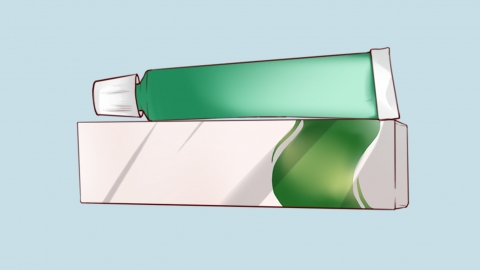What ointment should be used for a facial abrasion to prevent scarring?
For facial abrasions, you may use mupirocin ointment, recombinant human epidermal growth factor gel, silicone gel, mucopolysaccharide polysulfate cream, or medical Vaseline ointment as directed by a healthcare provider. If the wound is deep, bleeding persists, or signs of infection appear, seek medical attention promptly.
1. Mupirocin Ointment: An antibacterial and anti-inflammatory topical medication suitable for early-stage wounds. It helps inhibit bacterial growth and prevent infection, thereby reducing the risk of scarring due to worsening injury. Apply a thin layer after cleaning the wound, 2–3 times daily. Avoid contact with eyes.
2. Recombinant Human Epidermal Growth Factor Gel: A wound-healing promoter that stimulates regeneration of epidermal cells, accelerating the healing of superficial partial-thickness and minor fresh wounds. This shortens the healing period and reduces the likelihood of scarring. Apply evenly after cleaning the wound.

3. Silicone Gel: Used to prevent scar hypertrophy. Apply after the wound has healed. It forms a protective film on the skin surface, reduces moisture loss, and inhibits excessive collagen production, helping prevent scars from widening or hardening. Use consistently for several months, 1–2 times daily.
4. Mucopolysaccharide Polysulfate Cream: A skin-repair enhancing ointment that improves local blood circulation, aids in repairing damaged skin tissue, reduces post-inflammatory pigmentation, and can help fade early mild scars. Apply an appropriate amount to the healed wound area and gently massage.
5. Medical Vaseline Ointment: A soothing and moisturizing ointment ideal for small, superficial, dry wounds. It maintains a moist wound environment, minimizes thick scab formation and associated scarring, relieves skin discomfort, and prevents further damage from dryness. Apply 2–3 times daily.
In daily care, allow the wound to naturally form and shed scabs—do not forcibly remove them. Wear a wide-brimmed hat when outdoors to shield the area from sunlight and reduce pigmentation. Increase intake of protein-rich foods in your diet to support better skin repair.




